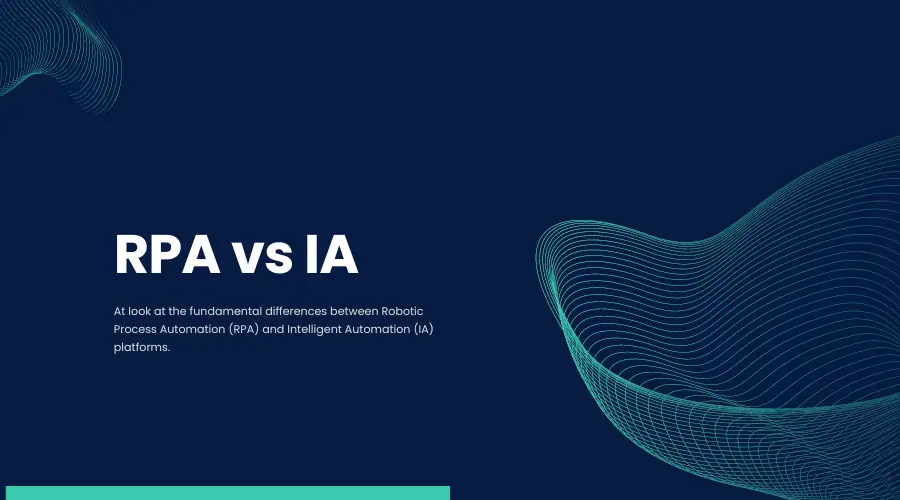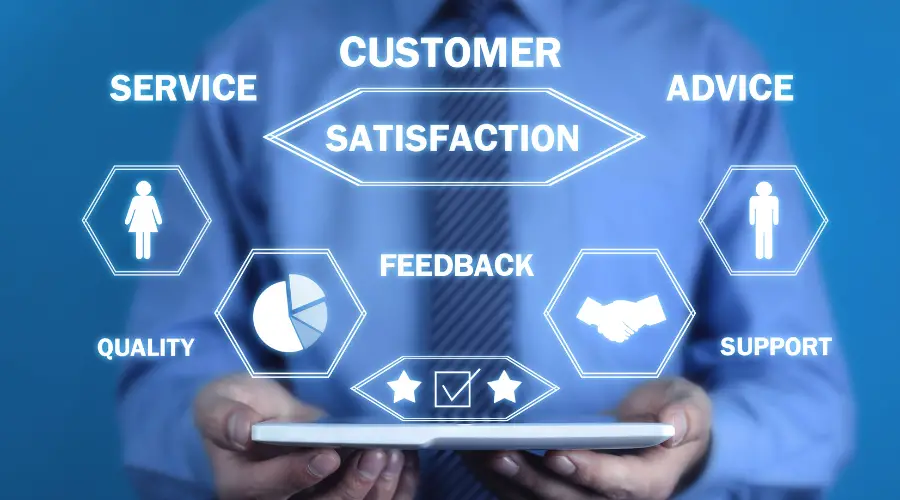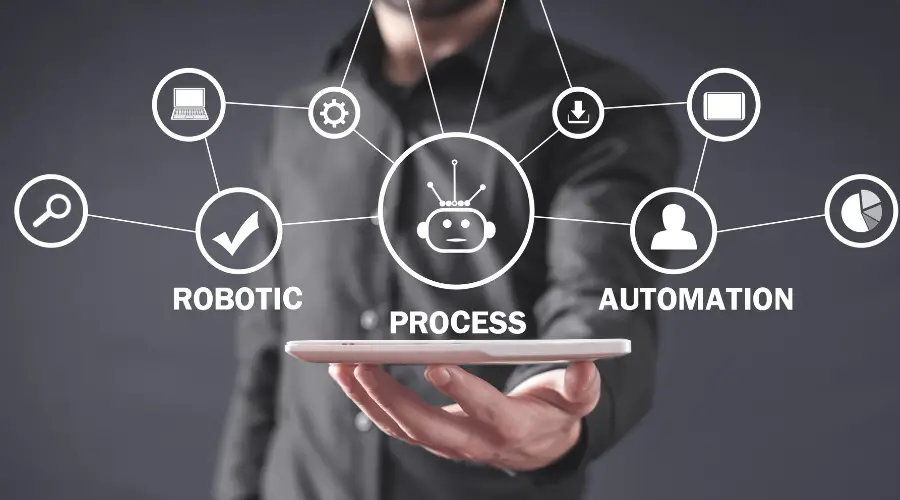In this article, we’ll delve deeper into the transformative role of Robotic Process Automation (RPA) in healthcare.
We’ll explore its major applications, the specific tasks it automates, and how it enhances efficiency and patient care. We’ll also look at real-world examples and discuss the potential challenges and solutions in the implementation of RPA.
Whether you’re a healthcare professional seeking to streamline operations or a technology enthusiast curious about the latest trends in healthcare, this comprehensive guide will give you a clear understanding of the incredible potential of RPA in revolutionizing healthcare processes.
Overview of RPA in Healthcare
Defining Robotic Process Automation
Robotic Process Automation (RPA) is an automation technology that utilizes software to perform tasks typically associated with human workers, such as extracting data, filling in forms, and moving files.
RPA combines APIs and user interface interactions to integrate and perform repetitive tasks between enterprise and productivity applications. This technology has been increasingly applied to various industries, including healthcare, to enhance efficiency and improve processes.
Automation Technology in Healthcare Industry
The healthcare sector is one where RPA can make a significant impact. Clinical data extraction is one valuable use case, where RPA tools can help healthcare companies retrieve data from both digital and physical clinical documents source. Automating the process of searching through a database for the correct documents and routing them to the appropriate user within the healthcare company’s network can save time and reduce errors.
Patient scheduling is another area where RPA plays a crucial role. With RPA technology, patients can schedule their appointments without intervention from hospital employees, leading to faster, more streamlined appointment scheduling processes source.
This not only eliminates the need for resource allocation for scheduling but also improves customer relations, as patients can arrange appointments with ease.
Furthermore, RPA in healthcare can enable smart data management. Better management of electronic health records and shared data access for patients, providers, and suppliers can be achieved through the use of RPA technology source.
The Internet of Things (IoT) also plays a part in RPA with human-machine interaction using wireless trackers, helping to perform and monitor real-time healthcare operations.
Top Uses of RPA in Healthcare
Patient Registration and Onboarding
Robotic Process Automation (RPA) plays a vital role in simplifying patient registration and onboarding. It allows healthcare providers to efficiently manage patient data, ensuring accuracy and completeness.
RPA tools can streamline processes like data entry, verification, and validation of patient information, subsequently reducing error rates and improving patient care.
For example, New Bedford Corporation, a medical billing and coding provider, improved patient records and billing entry time by 62% and saved approximately $70,000 in labor costs by implementing an RPA solution from Nintex.
Appointment Scheduling and Reminders
One of the significant RPA applications in healthcare is appointment scheduling. By automating the scheduling process, RPA reduces manual intervention and allows patients to easily book their appointments, improving customer experience and hospital efficiency.
Additionally, RPA can be used to send automated reminders, minimizing missed appointments and enhancing communications between patients and healthcare providers.
Billing and Claims Processing
Billing and claims processing are essential yet repetitive tasks in the healthcare industry. RPA can be utilized to automate these procedures, handling claims management, first-line inquiries, and follow-ups.
This automation not only increases accuracy but also significantly reduces processing time, resulting in better customer service.
For example, employees at Baptist Health South Florida use Fortra Automate to create task-based automations for claims processing and reduce their manual workloads by around 10 hours a week.
Regulatory Compliance and Reporting
Healthcare providers are constantly required to adhere to various regulatory compliances and reporting standards. RPA offers a practical solution for automating the management of these requirements, ensuring timely reporting and complete adherence to mandatory guidelines.
By efficiently maintaining up-to-date records related to patient care, RPA contributes to the establishment of a more organized and compliant workflow.
Benefits of RPA Implementation in Healthcare
Improved Accuracy and Reduced Human Errors
One of the main advantages of implementing RPA in healthcare is the improved accuracy and reduced human errors in tasks, especially those that are repetitive in nature.
By automating these tasks, healthcare professionals can ensure that data is accurately entered and processed. This leads to fewer mistakes and more reliable information for making essential decisions regarding patient care and treatment plans.
Increased Efficiency and Productivity
RPA can significantly increase efficiency and productivity within healthcare organizations. By automating various repetitive tasks, RPA allows healthcare professionals to devote more time to critical tasks, such as patient care and decision-making. This shift in focus can lead to a more efficient healthcare system, ultimately improving the quality of care provided.
Cost Savings and Financial Benefits
Implementing RPA can also lead to cost savings and financial benefits for healthcare organizations. By automating repetitive tasks, organizations can reduce the number of staff required to complete these tasks, thereby reducing labor costs.
Furthermore, increased efficiency and productivity can lead to better resource allocation, enabling healthcare organizations to provide high-quality care at a lower cost.
For example, a medical billing company found that utilizing RPA for some of their revenue cycle management processes saved hospitals an estimated 70% in resource costs.
Enhanced Patient Experience
With the implementation of RPA, healthcare organizations can improve the overall patient experience.
Through tasks like patient scheduling and clinical data extraction, RPA can streamline processes and reduce wait times, leading to a more positive and efficient experience for patients.
Additionally, the use of RPA can help healthcare professionals to provide more attentive and personalized care by freeing up time for meaningful interactions with patients. This ultimately results in increased patient satisfaction and improved patient outcomes.
Challenges and Potential Risks of RPA in Healthcare
Adoption and Implementation Barriers
One of the key challenges in implementing RPA in healthcare is determining which processes to automate.
Healthcare organizations often face a lack of clarity on selecting the appropriate business processes for RPA implementation, which can lead to unsuccessful automation projects.
In addition, the healthcare industry often requires dealing with both digital and physical clinical documents, which can make the automation process more complex 1.
Data Security and Confidentiality Issues
Ensuring data security and confidentiality is crucial within the healthcare sector. RPA technology involves accessing, processing, and storing large amounts of sensitive patient data, and mismanagement of this data can lead to breaches and loss of confidentiality.
Integrating RPA into existing systems can also increase the complexity of data management and contribute to potential security risks if not appropriately managed.
Regulatory and Compliance Concerns
With stringent regulations governing the healthcare industry, organizations need to ensure RPA systems comply with all rules and guidelines. As RPA technology continues to evolve, healthcare providers must stay up-to-date on any changes to regulations that may affect their automated processes.
This can prove challenging, as it requires constant monitoring of changes and prompt updates when necessary. Failure to maintain regulatory compliance may result in penalties and damage to an organization’s reputation.
High Implementation Costs
Implementing RPA technology in healthcare can be expensive. High costs are often associated with the initial setup, software licenses, and system integration 4. Since implementing RPA can require significant resources and investment, it is essential for healthcare organizations to weigh the potential value and benefits of automation against the initial costs and consider whether the investment will yield sufficient returns in the long run.
Future of RPA and AI in Healthcare
Integration of Machine Learning and Natural Language Processing
As the healthcare industry evolves, integrating machine learning and natural language processing (NLP) will play a crucial role in streamlining various services.
By utilizing these advanced technologies, healthcare providers can analyze large volumes of data, enabling them to make more accurate diagnoses and deliver personalized treatment plans.
Additionally, the combination of machine learning and NLP with robotic process automation (RPA) can help reduce administrative burdens by automating repetitive, time-consuming tasks, allowing medical professionals to focus on delivering optimal patient care.
Expansion of RPA Use Cases in Healthcare
While RPA is still an emerging technology, its use cases within the healthcare sector are expected to grow in both number and scope.
Some of the current applications of RPA in healthcare include streamlining billing processes, managing patient appointments, and optimizing patient flow.
As the adoption of RPA increases, we can anticipate its expansion to more complex tasks, integrating with other AI-driven systems, and transforming the way healthcare providers manage daily operations.
Digital Transformation in the Healthcare Sector
Digital transformation is an ongoing process in the healthcare industry, influencing all aspects of patient care, from diagnostics to treatment and beyond.
With advancements in artificial intelligence, machine learning, cognitive automation, and RPA, healthcare organizations can achieve higher levels of automation and efficiency, ultimately enhancing the overall patient experience.
This digital transformation enables healthcare providers to implement productivity applications that can analyze data, optimize resources, and make critical decisions in an increasingly dynamic environment.
As healthcare automation continues to advance, we can anticipate a future where RPA and AI technologies become integral components in the delivery of top-quality, patient-centric care.
By embracing these innovative tools, healthcare organizations can position themselves at the forefront of industry advancements and ensure they remain competitive within the ever-evolving landscape of medical services.



